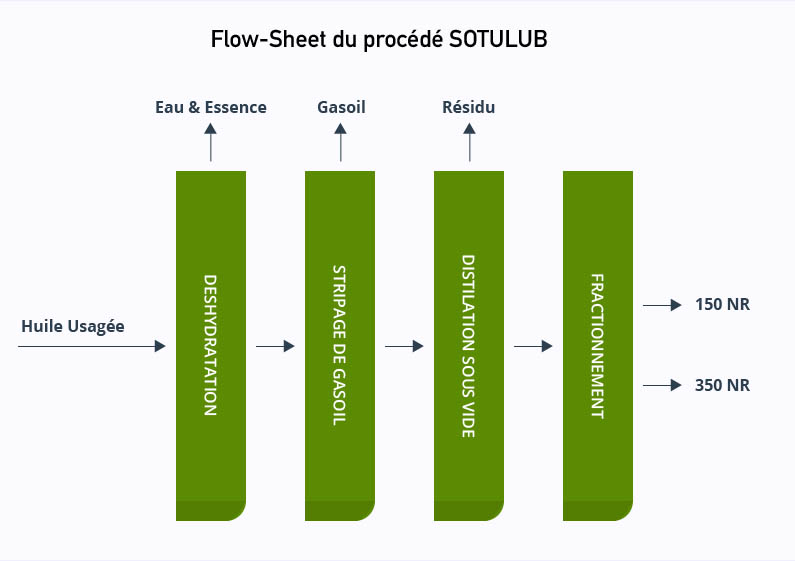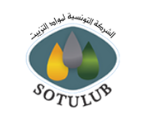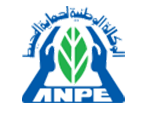SOTULUB owns a unit for used oil regeneration, with a nominal processing capacity of 16,000 T/year.
Since it was launched in 1984 and until the early 1990s, SOTULUB used a soil acidification process that proved to be both expensive and polluting. Since the latter date and up until now, SOTULUB has been using its own work method, which is the fruit of a research and development program done in collaboration with Tunisian universities.
In order to comply with the new work method requirements, SOTULUB developed its industrial machinery, by incorporating new high-technology equipment to be used in the regeneration of used oils.
SOTULUB’s work method

SOTULUB’s work method: A simply adjustable process
According to SOTULUB's work method, used oil regeneration consists in processing used oil as follows:
-
Dehydration and removal of suspended fine particles
-
Gasoil stripping
-
Vacuum distillation
-
Fractionation
Merits of SOTULUB’s work method
As compared to other companies, SOTULUB's work method has the following merits:
-
In terms of economy
- It implies low investment and operating costs.
- The technology used requires less processing equipment and needs only one chemical, namely Antipoll.
- This work method is cost-effective, even for processing capacities as low as 10,000 tons/year.
- It is energy-effective.
- It allows the profitable reuse of by-products (diesel and residue).
- The recovery rate of the lubricating oil is more than 90%.
-
In terms of environmental protection
- SOTULUB's work method generates no pollutants or waste.
-
In terms of management
- The equipment configuration is simple and compact.
- Total absence of corrosion and fouling issues.
- Total absence of clogging and coking issues.
- Great flexibility with regard to the quality of the processed used oil.
- The work method is easily adjustable to any existing unit with a vacuum distillation section.
-
In terms of product quality
- Production of base oils that conform with international standards.
- Production of base oils meeting the technical requirements of supply companies.





